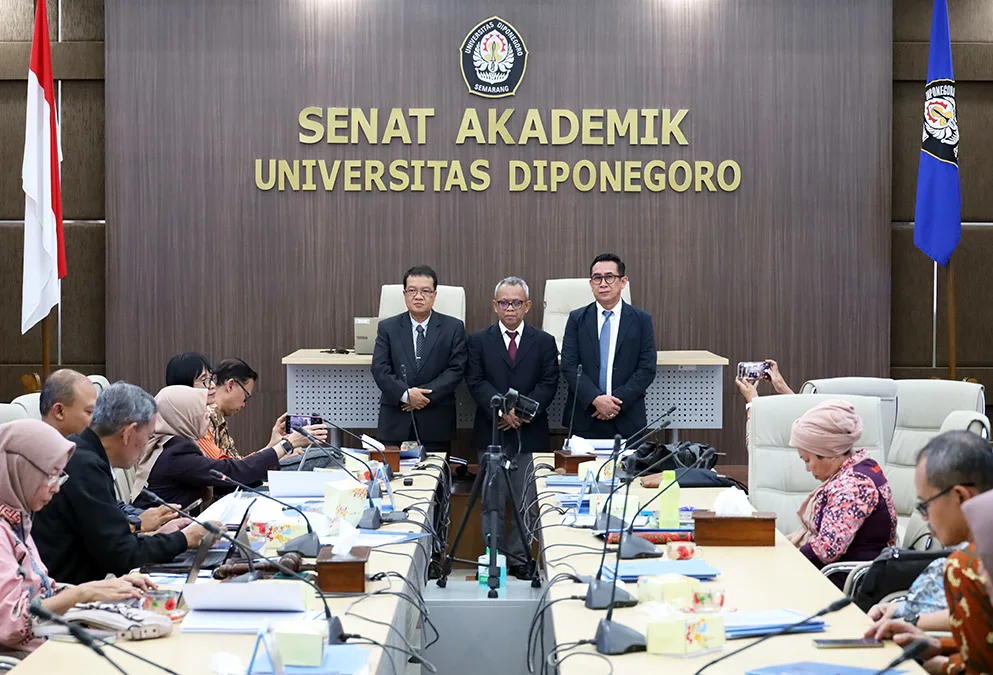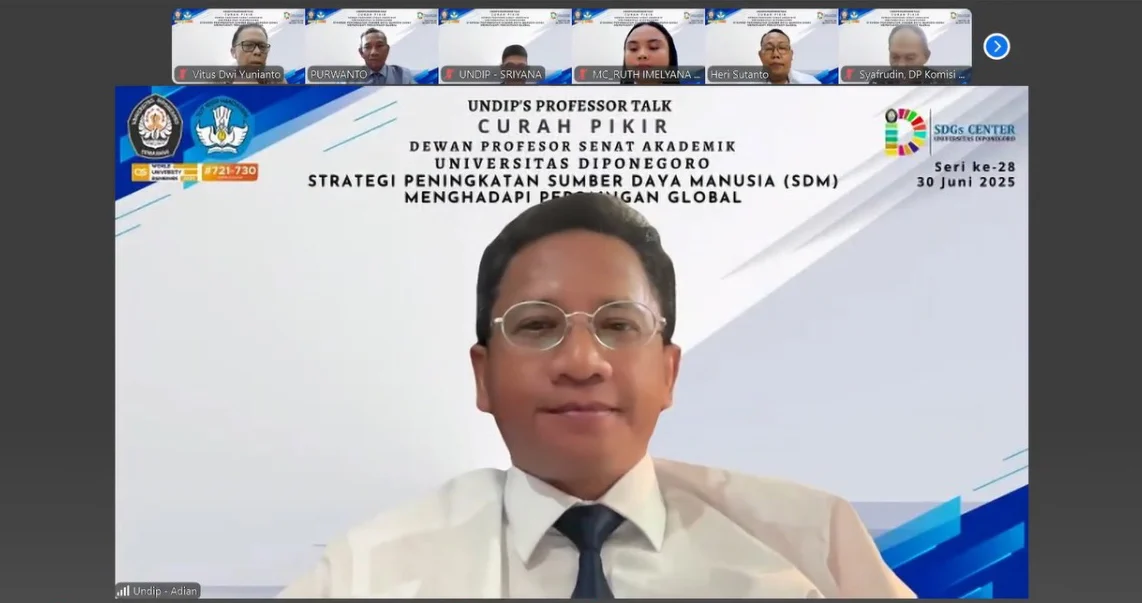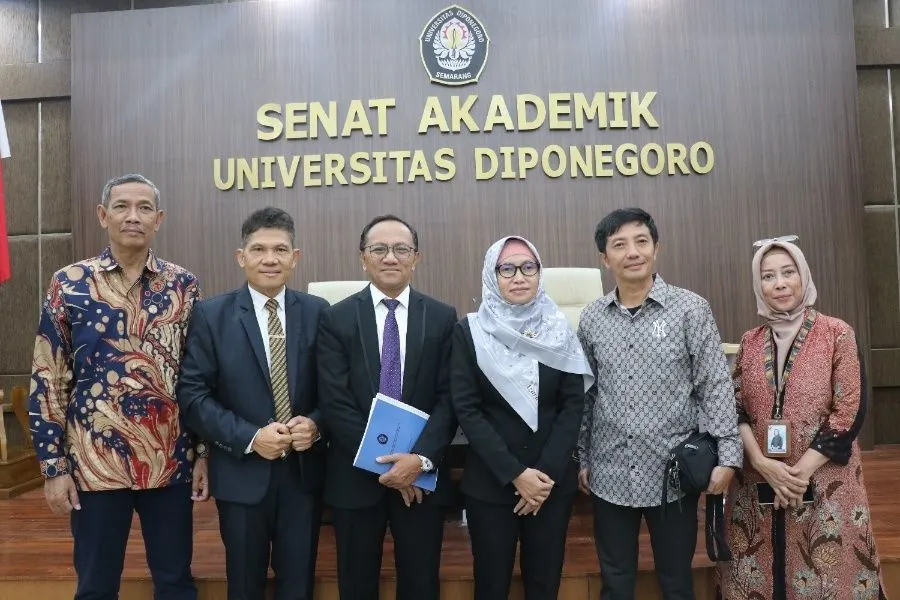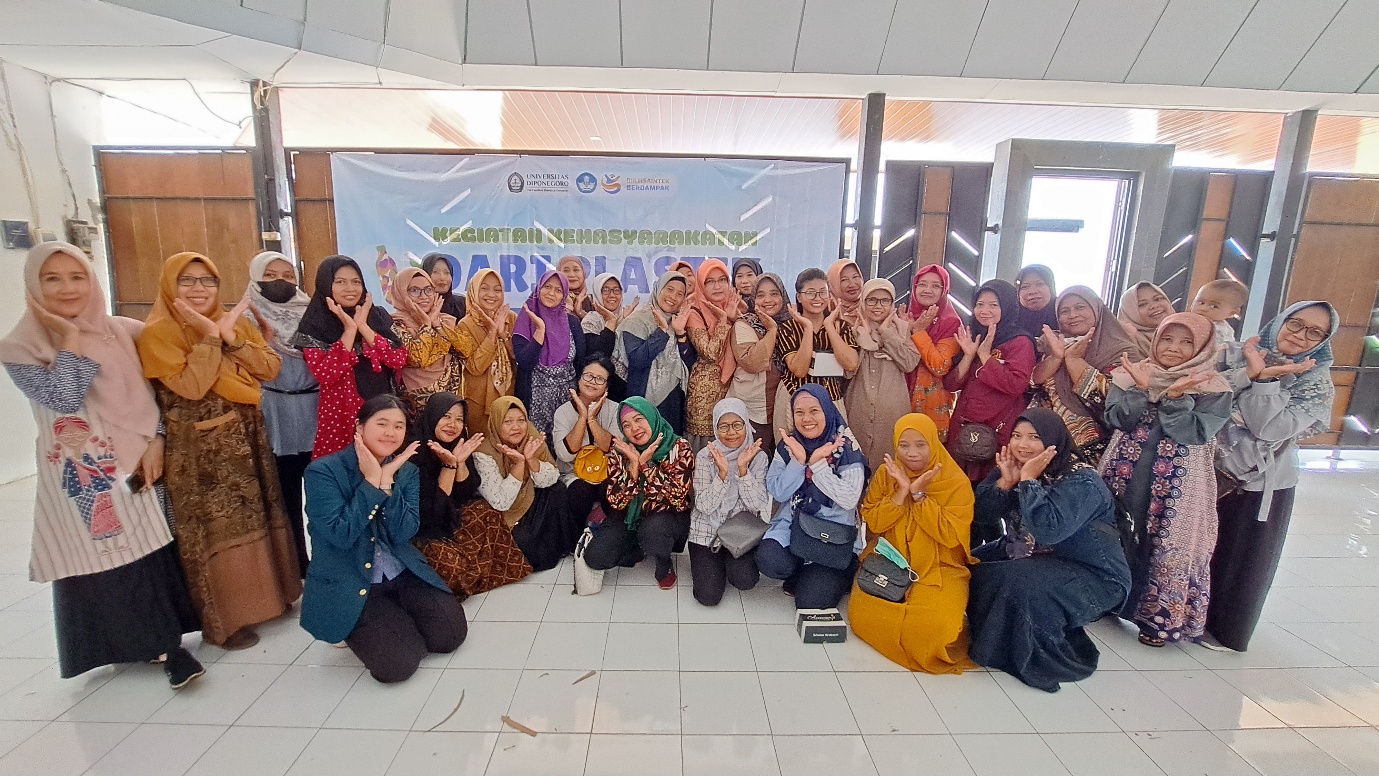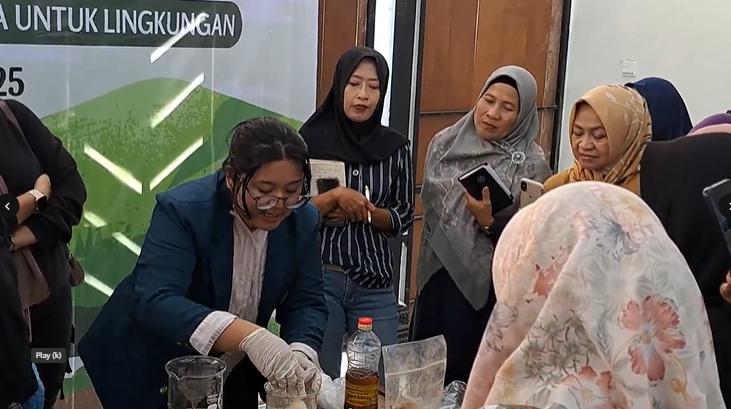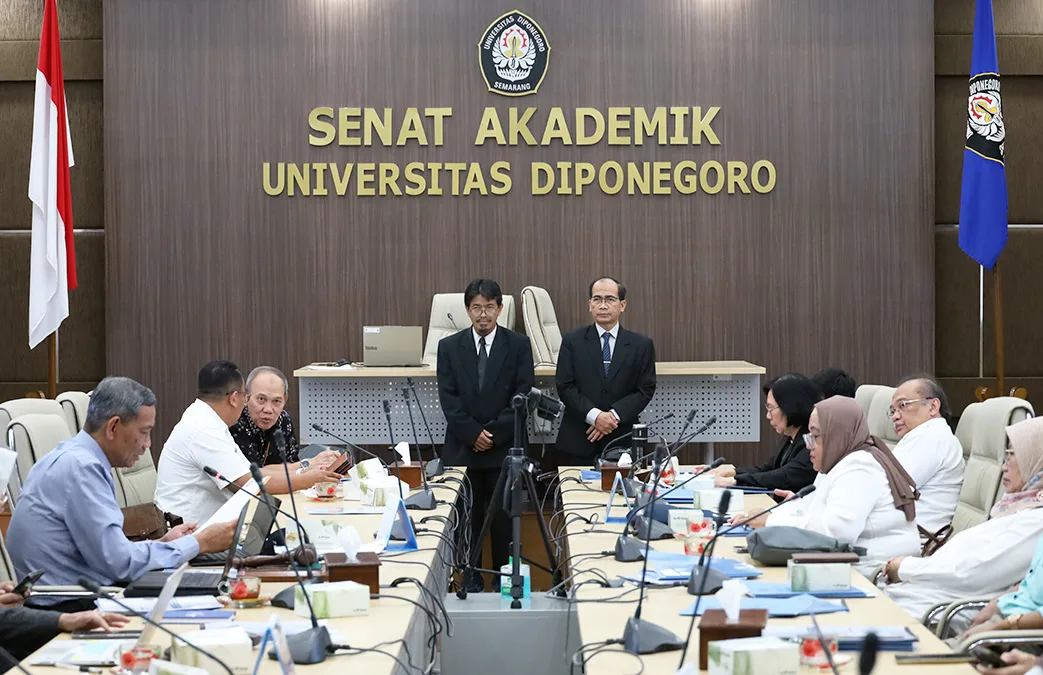UNDIP, Semarang (June 30, 2025) – Universitas Diponegoro (UNDIP) held scientific paper presentations for two prospective professors, hosted by the UNDIP’s Board of Professors on Monday, June 30, 2025, in the Academic Senate Meeting Room, 3rd Floor, SA-MWA Building, UNDIP Tembalang Campus. The candidates were Dr. Budiyono, S.KM., M.Kes., from the Faculty of Public Health, and Dr. Wahyudi, S.T., M.T., from the Faculty of Engineering.
In his presentation titled “The Impact of Pesticide Exposure on the Quality of the Nation’s Generation and the Application of Control Technologies,” Dr. Budiyono explained that pesticide use in Indonesia continues to rise, ranking third globally.
Over the past three decades (1990-2020), pesticide use in agriculture increased by 39%. However, the growing use of pesticides carries serious health risks. Both short- and long-term exposure can lead to irritation, suppressed cholinesterase enzyme activity, thyroid dysfunction (hypothyroidism), cardiovascular disorders (aortic stiffness), hypertension, type 2 diabetes, infertility, autism, low birth weight, and stunting.
“The quality of human resources is significantly affected by these health impacts, potentially undermining national productivity, competitiveness, and economic growth,” said Dr. Budiyono. “Health issues such as stunting, low birth weight, and metabolic diseases will influence the quality of future generations.”
He emphasized the need for prevention and protection, particularly for vulnerable groups such as pregnant women, infants, and children, from pesticide exposure. “This can be addressed through community health education; the development and use of less toxic pesticides like biopesticides; applying ozone technology to eliminate fungi; integrated pest control; the implementation of sustainable agriculture such as organic farming; and interdisciplinary collaboration involving related sectors and communities in controlling pesticide exposure,” Dr. Budiyono added.
Meanwhile, Dr. Wahyudi presented his paper titled “Design of an Artificial Intelligence-Based Assistive Device for the Visually Impaired.” He noted that assistive technologies play a crucial role in improving the quality of life for people with disabilities, including the visually impaired. Innovative assistive device design contributes to the development of smarter, more adaptive technologies that support navigation and enhance environmental awareness for visually impaired individuals.
“The device is designed as a head-mounted mobility aid that integrates a time-of-flight camera, webcam, and touch sensors. The system employs K-Means clustering, Convolutional Neural Networks (CNN), and concurrent programming on a Raspberry Pi 4B to detect and classify obstacles, as well as recognize nearby objects,” explained Dr. Wahyudi.
The system detects dynamic obstacles using the time-of-flight camera and K-Means algorithm to produce spatial audio. This audio varies based on horizontal and vertical direction and object distance, leveraging the auditory sensitivity of visually impaired users. As a result, users can accurately estimate the location of nearby obstacles using the audio output.
The object recognition system allows users to identify objects by name, direction, and distance—critical for supporting daily activities. The system operates using concurrent programming, enabling faster execution than conventional infinite-loop methods.
The hardware is designed to fit facial structures comfortably and includes flexible audio output, optimizing adaptability to individual needs. For future development, Dr. Wahyudi suggested adding sensors to help the device determine the user’s position and read text. To support these additional features, computing speed and microprocessor performance will also need to be improved for more efficient processing. (Public Communication/UNDIP/Dhany)


